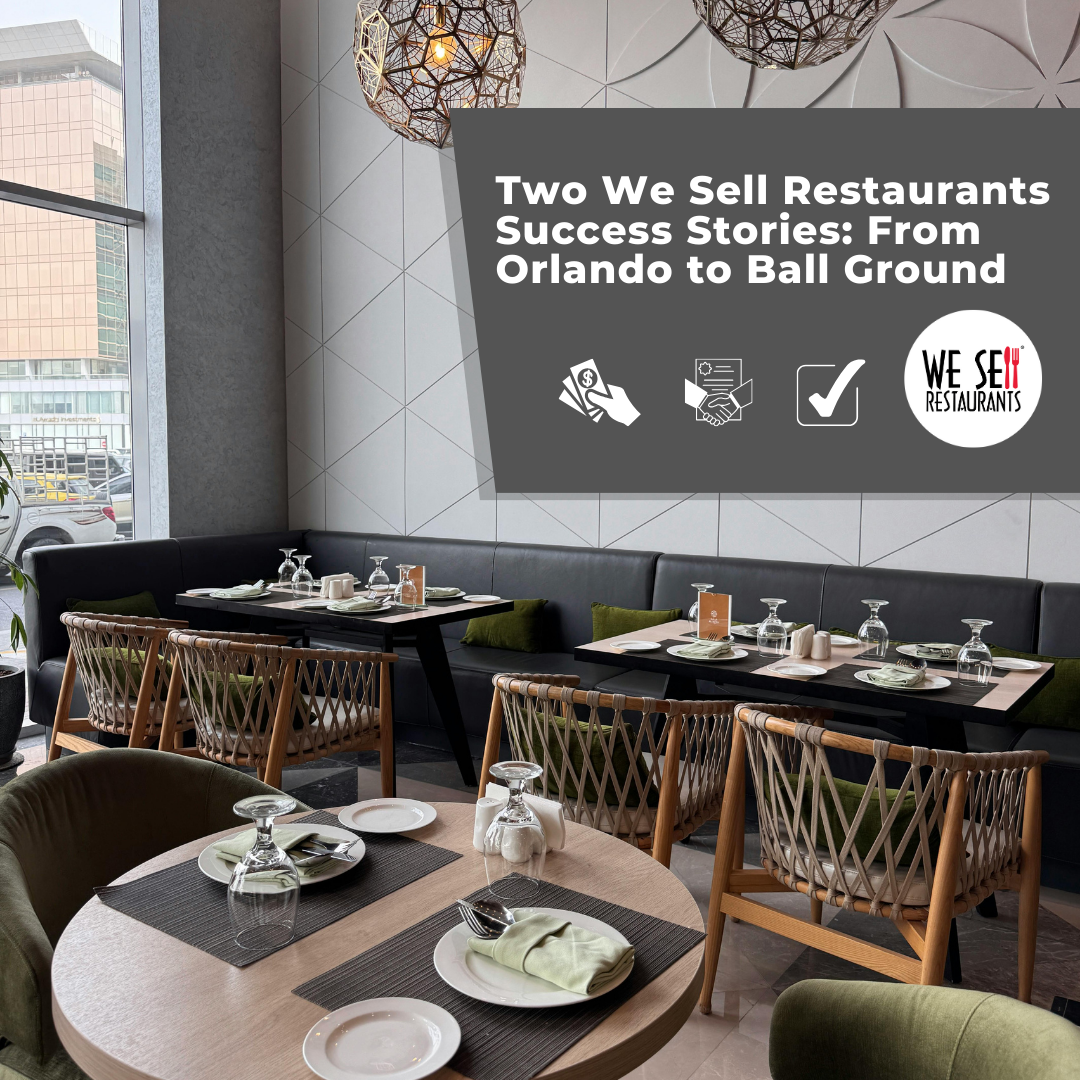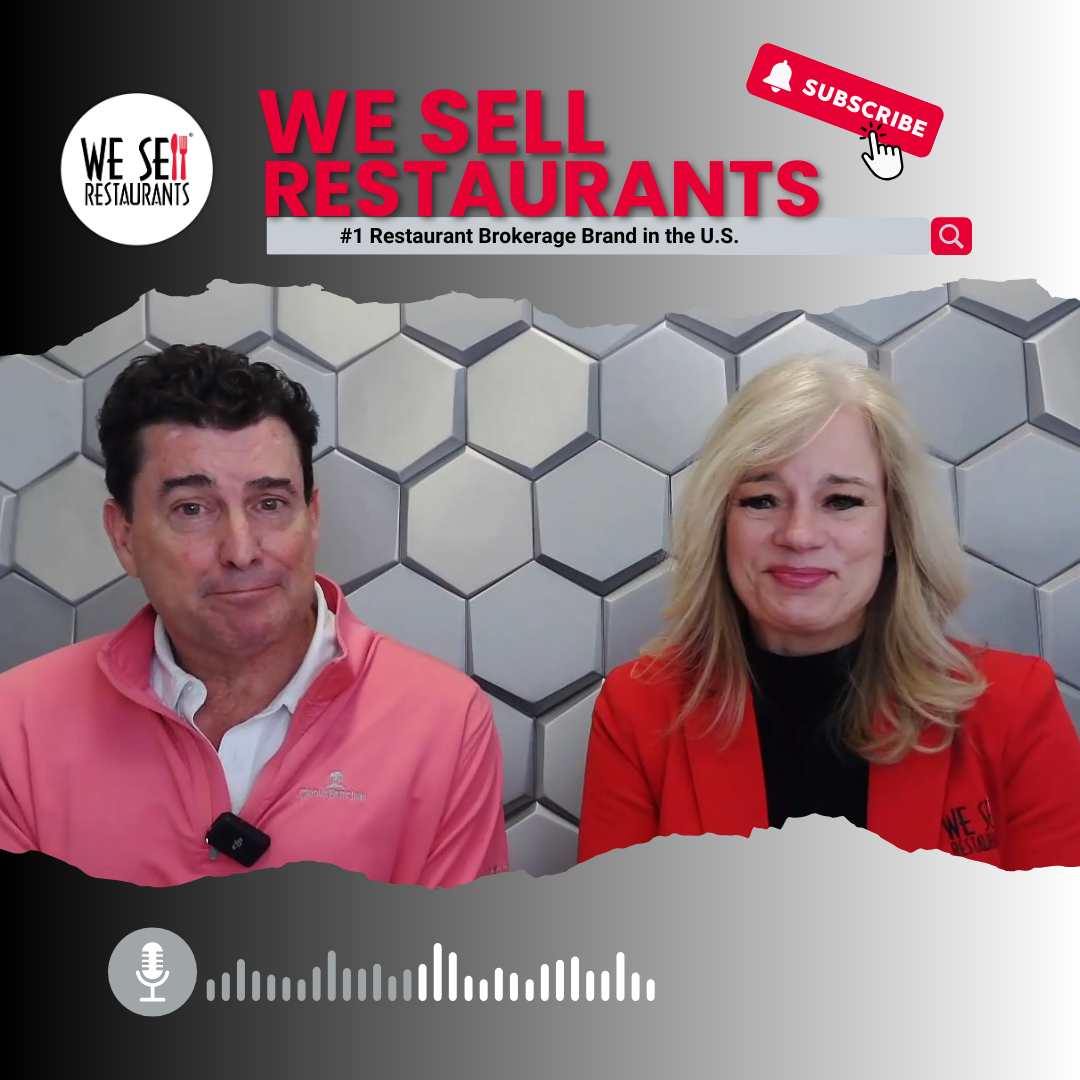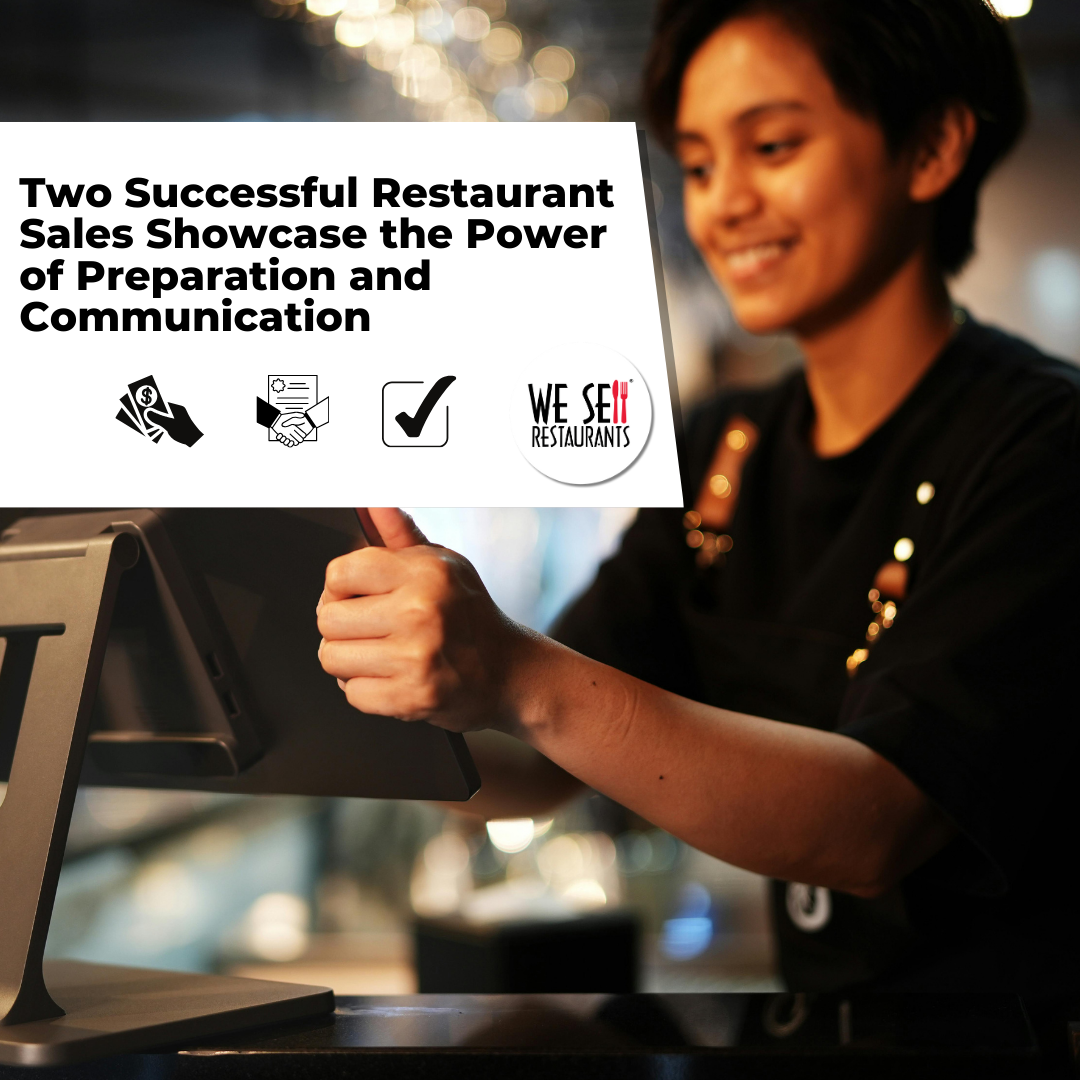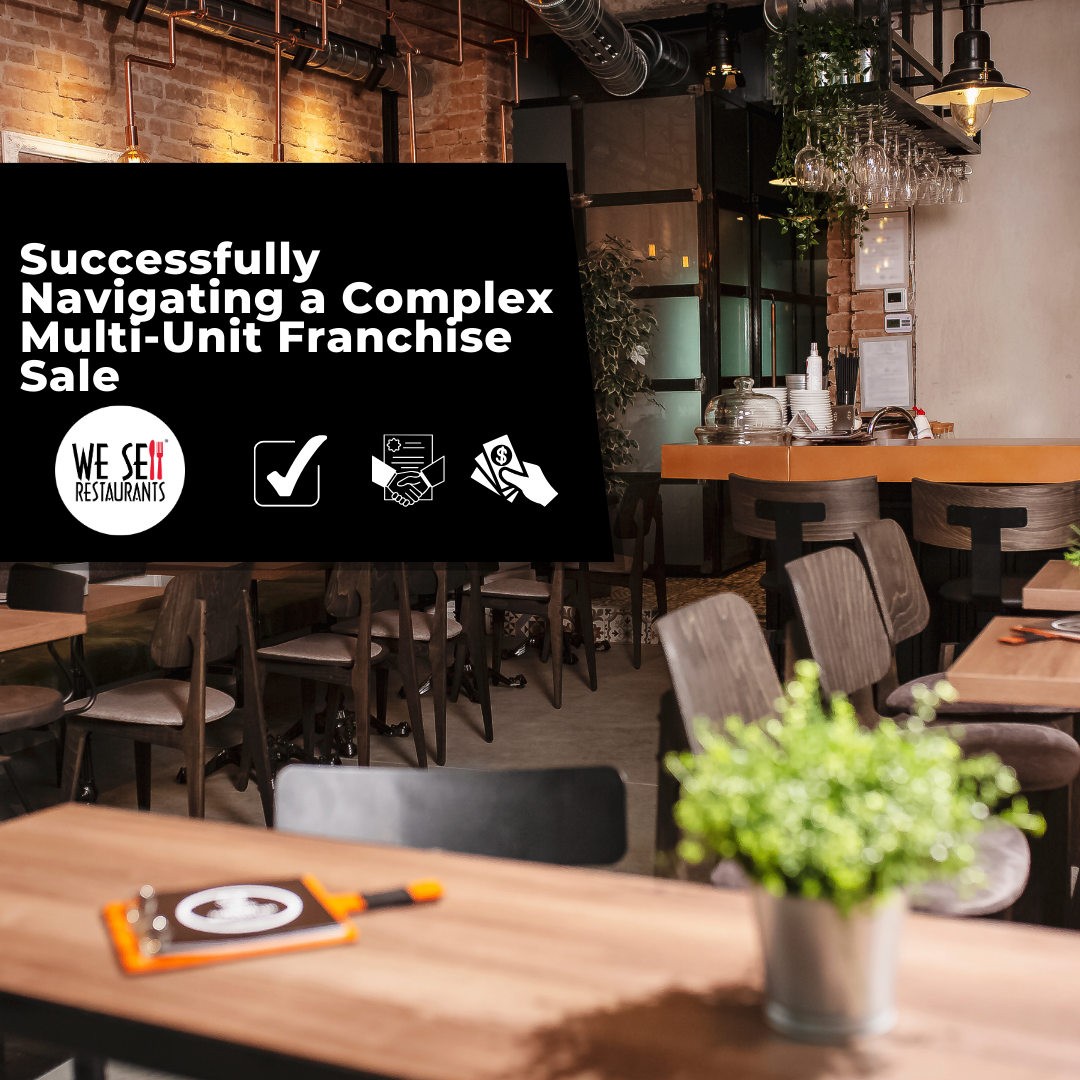If you are selling a restaurant, you may be wondering exactly why you need the services of a restaurant broker. After all, finding a buyer can’t be all that hard, right? The truth is that finding a buyer for the restaurant is often the easiest part of the transaction.
Buyers show up each day saying, “Hey, I’d like to buy that restaurant you are selling.” It’s at that crucial point, that the skills of a restaurant broker come into play. It is not uncommon for even professional business brokers to struggle with getting deals to the closing table and ultimately funding that restaurant you are selling. For Certified Restaurant Brokers, however, deals progress to closing nine times out of ten. Here’s why that occurs and just a few of the things a restaurant broker will do to get your deal to closing.
Item 1: A Certified Restaurant Broker will Review financials and recast to lending standards to prepare an Opinion of Value for selling a restaurant
That means the basis for pricing has validity in the marketplace, has the weight and responsibility of a trained professional behind the numbers and is comparable to selling prices for restaurants in the marketplace at that time. Restaurant Brokers are in contact with lenders and are familiar with the multiples and deal terms being struck in the marketplace for similar concepts and cash flow.
In addition, they know how to recast the financial statement to arrive at the fair market value a buyer will pay. That means adding back personal expenses and earnings for a seller to arrive at the definition of Sellers Discretionary Earnings used by lenders. Every SBA lending deal goes to an external valuation company for examination and confirmation of the pricing. Only a Certified Restaurant Broker can give you an opinion of value that matches what they see for lending in the market.
Item 2: Create ad copy using best practices for selling a restaurant designed to attract buyers
A Certified Restaurant Broker will create ad copy that highlights the most important selling elements of the business designed to draw in buyers. They will rely on experience and expertise to craft messaging that tells the story a buyer wants to hear.
They will focus on the equipment if the business is not cash flow positive and focus on the earnings and ability for lending if the business qualifies. All this leads to selling a restaurant more efficiently and effectively as buyers are attracted to the listing.
Item 3: Prepare a buyer’s package to present the listing to buyers
A Certified Restaurant Broker will prepare a professional and extensive offering memorandum or package on the listing. He or she will not present the financial statements without explanation and the tool they develop with both teach and inform the would-be buyer. Those selling a restaurant should request a sample package from anyone they consider representing the business and review how professional it is and the method for updating it. Is it prepared internally and can changes (pricing, financials, copy) be updated in real-time, or is it outsourced to a third party, creating delays in getting it into the hands of buyers?
Item 4: Market the Business on National Websites & Respond to all Buyer Inquiries
Selling a restaurant requires an investment of significant marketing dollars and any Certified Restaurant Broker should be able to explain where your restaurant for sale will be promoted including which channels, over what time period, and the scope of their full marketing campaign.
Will they post the restaurant for sale beyond their own website? If so, how many other websites will it appear on? What is their process for email campaigns and how many buyers are in their database? These are all critical factors to understanding who can sell a restaurant. After, the goal is not to list the business but to attract and close the deal with an actual buyer. That begins with attracting the buyer. As an example, We Sell Restaurants sends more than nine million emails a year to a database of more than 100,000 very focused buyers interesting in buying a restaurant. Ask any broker how many people are in their database and how they communicate with them before listing.
A Certified Restaurant Broker will respond quickly to all buyer inquiries by phone. This is an important point that anyone selling a restaurant can check prior to listing. If you are considering hiring a business broker, first inquire on one of their existing listings and gauge their level of follow-up. If they do not call but only email you, consider whether they are the correct resource to represent your business. After all, email can attract a buyer, but only direct client contact can seal the deal.
Item 5: Qualify the buyer for the business and if needed, the franchise brand
A Certified Restaurant Broker will screen and qualify buyers based on the seller and franchisor’s standards before releasing a package. They will secure a signed confidentiality agreement protecting the interests of the seller and integrating repercussions for those that do not adhere to the process.
Attracting a buyer is the first step but if they do not have sufficient liquidity to buy the business, qualify with the brand or with the landlord, then the effort is wasted. This is why selling a restaurant needs the professional services of an intermediary to be sure all candidates are vetted and should be learning about your location when selling a restaurant.
In addition to financial qualifications, there is also the need, for a franchise brand, to qualify the buyer’s experience and availability to attend training. The best buyer in the world may not qualify for the brand if his intention is to be absentee and the franchise has a strict requirement to be an owner-operator or have an operating partner that meets the experience requirements. A restaurant broker who understands these requirements upfront will avoid setting unrealistic expectations for those buyers or selling a restaurant.
Item 6: Work with the Buyer to Answer Questions and Arrange Buyer and Seller Meetings
Once a buyer has been qualified financially and the Certified Restaurant Broker is clear they will meet the financial, experience, and training requirements, they will begin meetings with the seller. That is critical as well, for those inexperienced in selling a restaurant, may put a buyer and seller together far too early in the process or before items one through five noted above are complete. There is no need to set up a meeting with a busy operator selling a restaurant if the buyer will not qualify financially or will not meet the training requirements or experience requirements of the brand. Certified Restaurant Brokers understand this and will not waste a seller’s time.
Item 7: Selling a Restaurant Requires a Written Asset Purchase Agreement
A strong Restaurant Broker will prepare a written asset purchase agreement, not a letter of intent or LOI for your business. This is critical as deals often fall apart because brokers will simply get a non-binding LOI drafted between parties and then turn it over to attorneys, also known as “deal-killers.”
The asset purchase agreement will protect the owner’s interest including all deal terms including deposits, landlord approval, franchise transfer fees, lending and due dates, franchise approval, and all other contingencies. Without a firm agreement in place, there is really no offer to buy as an LOI is non-binding. Failing to negotiate a deal and get it in writing is one of the five deadly mistakes to avoid in selling your restaurant. You need a good negotiator working on your behalf.
Item 8: Introduce the Buyer to Closing Attorney and Lending Resources for Selling a Restaurant
A strong Certified Restaurant Broker will have resources that will assist in moving deals to the closing table including attorneys who are already comfortable with the asset purchase agreement. It will also include lenders who are comfortable with lending on selling a restaurant.
Item 9: Assist Buyers with All Lender, Landlord, and Franchise Applications & Forms
Key third-party players to the deal can be insurmountable for buyers who are seeing forms, applications, and checklists for the first time. A Certified Restaurant Broker keeps the deal together by lending expertise and experience for all the items necessary for the third-party players like the landlord, the franchise, and most importantly, the lender.
A Certified Restaurant Broker has seen the lending process unfold dozens of times and knows what is required. He or she will have worksheets or templates for the buyer’s use along with coaching them through how to develop the projections the bank is looking for. That’s why a Certified Restaurant Broker will get 90% of all deals to the closing table while less experienced brokers struggle to finalize deal terms for selling a restaurant.
Item 10: Hold Weekly Calls with the buyers and Sellers and Closing Checklist
Certified Restaurant Brokers like those at We Sell Restaurants hold weekly calls once a deal is in progress with both the buyer and seller. They have closing checklists that cover all deal elements from POS changeover to notification of staff and counting of inventory.
These weekly calls lead to success in closing the deal when selling a restaurant and their expertise and knowledge lead to funding for the seller.
As you can see from these ten items, the work that a Restaurant Broker performs on behalf of those selling a restaurant is arduous and detailed but pays off for the owner and the buyer. They receive outstanding representation and guidance as they successfully complete their journey.
For questions on selling a restaurant, contact a Certified Restaurant Broker or visit wesellrestaurants.com
 Robin Gagnon, Certified Restaurant Broker®, MBA, CBI, CFE is the co-founder of We Sell Restaurants and industry expert in restaurant sales and valuation. Named by Nation’s Restaurant News as one of the “Most Influential Suppliers and Vendors” to the restaurant industry, her articles and expertise appear nationwide in QSR Magazine, Franchising World, Forbes, Yahoo Finance, and BizBuySell. She is the co-author of Appetite for Acquisition, an award-winning book on buying restaurants.
Robin Gagnon, Certified Restaurant Broker®, MBA, CBI, CFE is the co-founder of We Sell Restaurants and industry expert in restaurant sales and valuation. Named by Nation’s Restaurant News as one of the “Most Influential Suppliers and Vendors” to the restaurant industry, her articles and expertise appear nationwide in QSR Magazine, Franchising World, Forbes, Yahoo Finance, and BizBuySell. She is the co-author of Appetite for Acquisition, an award-winning book on buying restaurants.

 404-800-6700
404-800-6700









